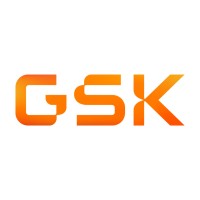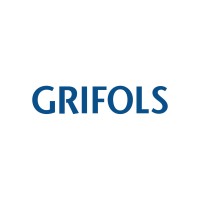
GSK
We are uniting science, technology and talent to get ahead of disease together. Our community guidelines: https://gsk.to/socialmedia



We are uniting science, technology and talent to get ahead of disease together. Our community guidelines: https://gsk.to/socialmedia

Grifols is a global healthcare company founded in Barcelona in 1909 committed to improving the health and well-being of people all over the world. A leader in essential plasma-derived medicines and transfusion medicine, we develop, produce and provide innovative healthcare services and solutions in more than 110 countries. Patient needs and our ever-growing knowledge of many chronic, rare and prevalent diseases, sometimes life-threatening, drive our innovation in plasma-based therapies and other biopharmaceuticals to enhance quality of life. Grifols is focused on treating conditions across a broad range of therapeutic areas: immunology, hepatology and intensive care, pulmonology, hematology, neurology and infectious diseases. With a workforce of over 23,000 employees in more than 30 countries and regions, we are committed to a sustainable business model that sets the standard for continuous innovation, quality, safety and ethical leadership in the industry. Our work has a positive social and economic impact in the countries where we operate, creating jobs and generating wealth. People are at the heart of what we do, and we strive to create an inclusive, diverse, fair and equal society. Maintaining and promoting a workforce that reflects this reality leads to enhanced professional relationships and helps us to give our best to patients, donors and customers. In 2025, Grifols was named one of TIME’s ‘World’s Best Companies’ for the third year in a row, reaffirming our commitment to excellence. We were also recognized by Forbes as one of the "Best World Employers 2025," reflecting our dedication to fostering an inclusive and supportive workplace for all. To maintain a positive community and overall respectful communication, please keep our community guidelines in mind.
Security & Compliance Standards Overview












No incidents recorded for GSK in 2025.
No incidents recorded for Grifols in 2025.
GSK cyber incidents detection timeline including parent company and subsidiaries
Grifols cyber incidents detection timeline including parent company and subsidiaries
Last 3 Security & Risk Events by Company
Angular is a development platform for building mobile and desktop web applications using TypeScript/JavaScript and other languages. Prior to versions 19.2.16, 20.3.14, and 21.0.1, there is a XSRF token leakage via protocol-relative URLs in angular HTTP clients. The vulnerability is a Credential Leak by App Logic that leads to the unauthorized disclosure of the Cross-Site Request Forgery (XSRF) token to an attacker-controlled domain. Angular's HttpClient has a built-in XSRF protection mechanism that works by checking if a request URL starts with a protocol (http:// or https://) to determine if it is cross-origin. If the URL starts with protocol-relative URL (//), it is incorrectly treated as a same-origin request, and the XSRF token is automatically added to the X-XSRF-TOKEN header. This issue has been patched in versions 19.2.16, 20.3.14, and 21.0.1. A workaround for this issue involves avoiding using protocol-relative URLs (URLs starting with //) in HttpClient requests. All backend communication URLs should be hardcoded as relative paths (starting with a single /) or fully qualified, trusted absolute URLs.
Forge (also called `node-forge`) is a native implementation of Transport Layer Security in JavaScript. An Uncontrolled Recursion vulnerability in node-forge versions 1.3.1 and below enables remote, unauthenticated attackers to craft deep ASN.1 structures that trigger unbounded recursive parsing. This leads to a Denial-of-Service (DoS) via stack exhaustion when parsing untrusted DER inputs. This issue has been patched in version 1.3.2.
Forge (also called `node-forge`) is a native implementation of Transport Layer Security in JavaScript. An Integer Overflow vulnerability in node-forge versions 1.3.1 and below enables remote, unauthenticated attackers to craft ASN.1 structures containing OIDs with oversized arcs. These arcs may be decoded as smaller, trusted OIDs due to 32-bit bitwise truncation, enabling the bypass of downstream OID-based security decisions. This issue has been patched in version 1.3.2.
Suricata is a network IDS, IPS and NSM engine developed by the OISF (Open Information Security Foundation) and the Suricata community. Prior to versions 7.0.13 and 8.0.2, working with large buffers in Lua scripts can lead to a stack overflow. Users of Lua rules and output scripts may be affected when working with large buffers. This includes a rule passing a large buffer to a Lua script. This issue has been patched in versions 7.0.13 and 8.0.2. A workaround for this issue involves disabling Lua rules and output scripts, or making sure limits, such as stream.depth.reassembly and HTTP response body limits (response-body-limit), are set to less than half the stack size.
Suricata is a network IDS, IPS and NSM engine developed by the OISF (Open Information Security Foundation) and the Suricata community. In versions from 8.0.0 to before 8.0.2, a NULL dereference can occur when the entropy keyword is used in conjunction with base64_data. This issue has been patched in version 8.0.2. A workaround involves disabling rules that use entropy in conjunction with base64_data.